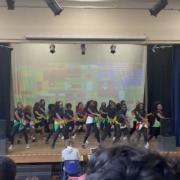
Whilst Cyprus is only a small island in the East Mediterranean, it has been divided in two since 1974, with a dispute that remains ongoing. The situation is one that can cause confusion and has very few clear answers. Essentially, the Southern section classifies as the ‘Greek’ side whilst the Northern section classifies as ‘Turkish’. However, it’s not that simple.
In the Summer of 1974, Turkey invaded Cyprus due to the idea of Enosis. Enosis was the proposition of unifying Greece and Cyprus which was brought about by EOKA B (a group of freedom fighters). Cyprus had been under British rule since the previous century and in the 1950’s, the original organisation EOKA used guerrilla warfare in an attempt to drive the British off of the island. Following this, a constitution was drawn up in 1960, for the Republic of Cyprus. The constitution involved Greece, the UK and Turkey being guarantors of the island. Makarios was unhappy with the constitution and responded to it with his ’13 points’.
1963 onwards consisted of fighting between the various groups on the island such as EOKA B and the Turkish opposition the TMT. EOKA B overthrew Makarios’ government in 1974 to try and push for Enosis. It was at this point that Turkey invaded. The reasons for the Turkish invasion will vary based on who you are speaking to, however the main reason was to protect the Turkish Cypriots from Greek Cypriot rule of the island.
Nowadays, the island is split into roughly 60% Greek territory and 40% Turkish territory with part of the island being no-man’s land. This acts as a buffer zone and is controlled by the United Nations. It must be said that the Turkish side is only recognised by Turkey itself. The Greek and Turkish Cypriots live separately, with different religions and different languages spoken. In the South you will find plenty of Churches, and in the North, plenty of Mosques. Many people often ask what the relationship is like between the two sets of people. One Cypriot has described the situation as the following: ‘the majority of Greek and Turkish people do not hate each other, but they have to follow what the politicians are doing. In the past, if the schools for Greek and Turkish children were joint, then I’m sure that people would have grown up with much more trust in each other and we possibly wouldn’t have got to this bad situation.’ The current state of the matter remains the same as it did in 1974, with another Cypriot saying that ‘the three guarantors have to this day done nothing to resolve the situation and the only thing that has been achieved is the opening of a few border points. Still, after all these years, so many people from both sides are displaced from where they grew up.’ Many political talks have taken place between the two sides, however, a solution is yet to be reached.



























